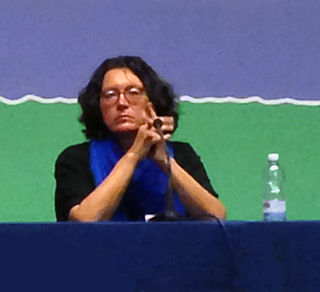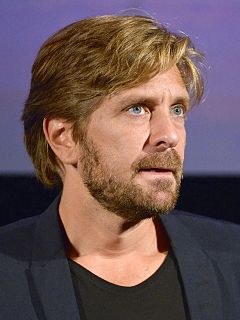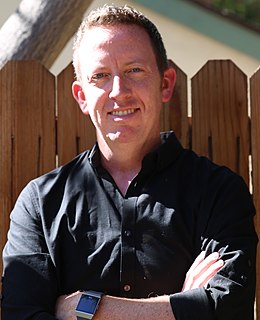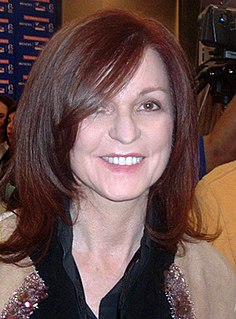A Quote by Etgar Keret
I think the typical way is that usually Holocaust survivors are known to be very quiet and full of anxiety, many of them don't like life, don't trust people. But my parents were children during the Holocaust. And my father was very optimistic.
Related Quotes
Why is it, that there's no movies, very little very little attention about the greatest Holocaust in the history of the world which was the Holocaust against Christians by the Soviet communism.And that's my point. We have a controlled media today that talks about the Holocaust, but they don't talk about the death and destruction of tens of millions of Christians...Which was a bigger Holocaust.
We always see the Holocaust in terms of black-and-white images, barking Germans, cowering Jews. We know very well-known fixed places like Auschwitz, Birkenau, Treblinka, and Beltzec. Instead, war can live in a couple having a spat, when we say, "That was a real war." We very rarely have the Holocaust live in the terms of today. And I think that's a problem, because it becomes ancient history.
I've learned there are a lot of people that don't want to believe the Holocaust ever happened because it doesn't fit their other beliefs and so they deny it and it makes them sleep better at night to do so. But it makes the Holocaust survivors sleep better at night to know that we've given them a voice.
I believe that at the beginning of the life of every artist there is some kind of trauma. We have a problem and all of our life we try to speak about this problem. My trauma was historical. When I was three or four, all the friends of my parents were survivors of the Holocaust; they spoke a lot about that. My father was hiding during the war, it was something totally present when I was a boy. It is sure that it has made me.
It was really hard coming to terms with the Nazi history. Then in my twenties I was traveling to Germany. There was a lot of poetry activity and some of my first readings abroad and trying to relate with people my own age there and what they were discovering and learning had to examine in terms of their backgrounds. Then so many of my friends had family who had either perished in the holocaust or survived in the holocaust. It was very palpable.
In trying to make a broader historical point about the range of atrocities the Germans committed against many people, I made a clumsy association about the Holocaust, for which I am sorry and I regret. Jews obviously do not control media or any other industry. The fact that the Holocaust is still a very important, vivid and current matter today is, in fact, a great credit to the very hard work of a broad coalition of people committed to the remembrance of this atrocity - and it was an atrocity.
My father enabled me to really believe in myself. And yet I've heard very similar stories - from many, many people. It's the way he approached his life. The way he approached his life - he was the eternal optimist. He was the most optimistic person that I've ever known. Even in the face of this diagnosis with cancer, he was filled with optimism about what he could do and what he could accomplish.
Creationists and Holocaust deniers are both very similar - both are denying what is a perfectly manifest fact. In the case of Holocaust deniers it's more recent history, but in both cases the evidence - in favour of the Holocaust and evolution - is simply overwhelming. That doesn't mean they are morally or politically equivalent. But they are equivalent in denying history.




































